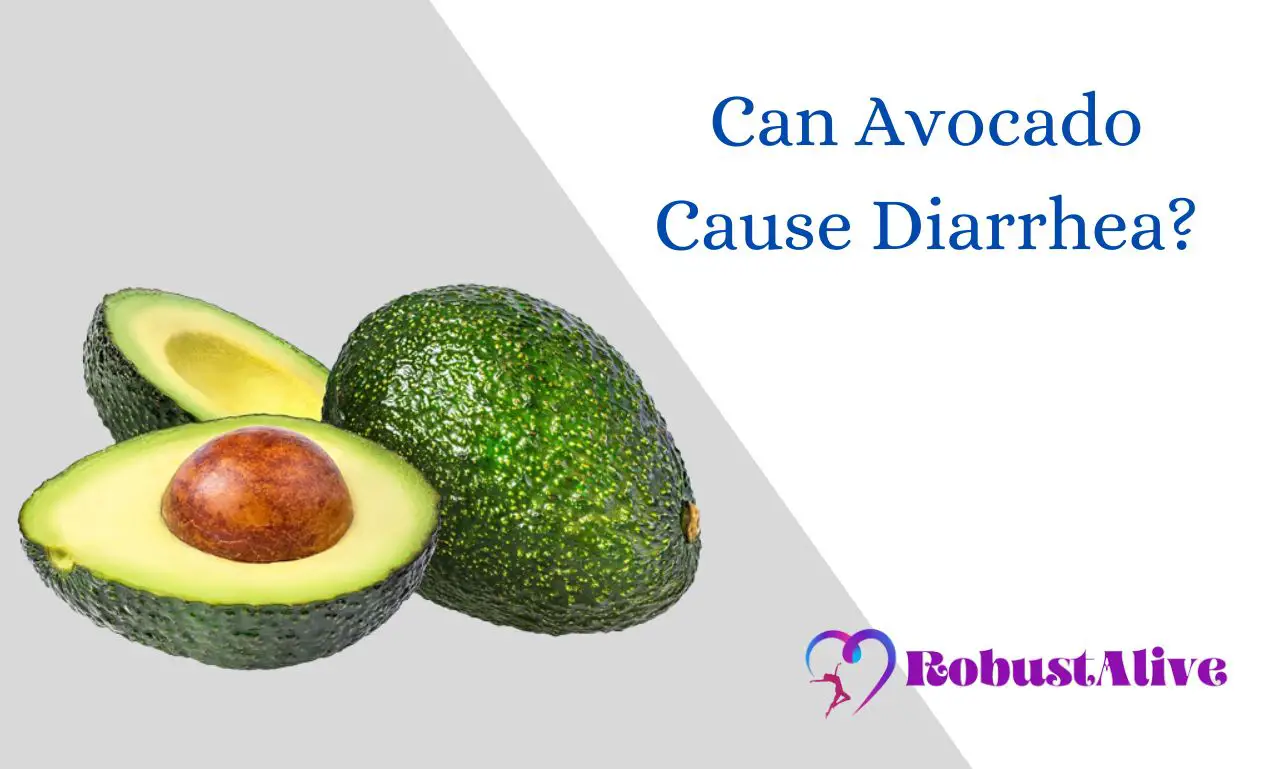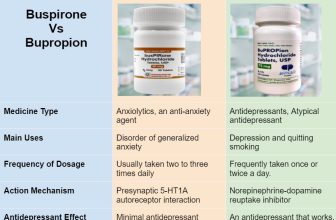Can Avocado Cause Diarrhea?

Whether smashed onto toast or used as a healthy fat in smoothies, avocados are a delicious and nutritious addition to any diet. However, consuming too much avocado may cause digestive issues like diarrhea.
So, can avocados cause diarrhea?
Avocados can cause diarrhea in some people due to intolerance, allergy, high fiber, FODMAPs, food poisoning, fructose malabsorption, and chemical sensitivity. To prevent it, avoid or reduce intake, choose ripe avocados, stay hydrated, and seek medical advice for persistent diarrhea.
In this article, we’ll explore whether avocado can cause diarrhea, what might be causing this reaction, and some tips on how to prevent it. So if you’re an avocado lover, keep reading!
Can Avocado Cause Diarrhea?
The short answer is yes; avocados can cause diarrhea in some people. However, it is essential to understand that only some people react to avocados similarly. Some people can consume avocados without issues, while others may experience digestive problems.
What Causes Diarrhea?
Before we delve into the potential causes of avocado-induced diarrhea, it’s essential to understand what diarrhea is and what causes it. Diarrhea is characterized by loose, watery stools, often accompanied by abdominal pain, cramping, and bloating. Common causes of diarrhea are viral or bacterial infections, allergies or food intolerances, and certain medications.
Regarding food intolerances or allergies, the body’s immune system perceives a specific food as a threat and releases chemicals such as histamine to fight it off. These chemicals can cause inflammation in the gut, leading to symptoms such as diarrhea, nausea, and vomiting.
How Can Avocado Cause Diarrhea?
While avocado is a nutrient-dense food that is generally safe for consumption, some people may experience digestive issues after eating it. There are several reasons why avocado can cause diarrhea in some people:
- Avocado Intolerance
- Allergy
- Fiber Content
- FODMAPs
- Food Poisoning
- Fructose Malabsorption
- Sensitivity to Chemicals
Avocado Intolerance
Some people may be intolerant to avocados due to their high-fat content or other compounds found in the fruit. For example, avocado contains a group of carbohydrates called oligosaccharides that can be difficult to digest and ferment in the gut, leading to bloating, gas, and diarrhea.
Allergy
Although rare, some people may be allergic to avocados. Avocado allergy is more common in people allergic to latex, bananas, kiwi, or chestnuts. The symptoms of avocado allergy can range from mild to severe and may include diarrhea, hives, swelling, and anaphylaxis.
Fiber Content
Avocados are high in fiber, which can be difficult for some people to digest. Consuming too much fiber can lead to diarrhea, bloating, and other digestive issues.
Additionally, some people may be sensitive to insoluble fiber, which is found in the skin and seed of the avocado. Eating these parts of the fruit can lead to diarrhea or other gastrointestinal symptoms.
FODMAPs
FODMAPs are a group of carbohydrates that some people find difficult to digest in the small intestine, leading to digestive issues.
Avocado is high in FODMAPs, which include oligosaccharides, fructose, and polyols. When these carbohydrates reach the large intestine, they are fermented by gut bacteria, producing gas and water. This can result in diarrhea, bloating, and other gastrointestinal discomforts.
For individuals with irritable bowel syndrome (IBS) or other digestive disorders, consuming foods high in FODMAPs, such as avocado, can exacerbate their symptoms, causing diarrhea, bloating, and abdominal pain.
Food Poisoning
Like any other food, avocados can be contaminated with harmful bacteria such as Salmonella, E. coli, or Listeria. Contaminated avocados can cause food poisoning, leading to diarrhea, vomiting, and other symptoms.
Fructose Malabsorption
Avocados contain a small amount of fructose, a natural sugar in many fruits. Some people may have difficulty digesting fructose, leading to diarrhea and other digestive issues.
Sensitivity to Chemicals
Avocado contains various natural chemicals, including glutamates and amines like tyramine and histamine. These compounds can increase in levels as the fruit ripens and softens. For some individuals, sensitivity to these chemicals can cause digestive issues, including diarrhea.
It is important to note that not all individuals are sensitive to these compounds, and their effects on the body can vary from person to person.
How Can You Prevent Diarrhea From Eating Avocados?
Here are some tips to avoid avocado-related diarrhea :
- If you’re sensitive to avocados, it’s best to cut off or reduce your intake.
- A low FODMAP diet might help if you have IBS or other digestive disorders.
- The skin and seed of an avocado contain insoluble fiber that can be tough to digest, so it’s best to avoid them.
- Make sure your avocados are fresh and stored correctly to avoid food poisoning.
- Ripe avocados with softer flesh have less insoluble fiber, which can reduce your risk of diarrhea.
- Try pairing avocado with low-fat, high-fiber foods like leafy greens or whole-grain bread to avoid an upset stomach.
- Avoid processed foods like guacamole or avocado oil that might contain hard-to-digest ingredients.
- Staying hydrated is critical to preventing dehydration, a common symptom of diarrhea.
- Avoid eating avocado before exercise, as it can lead to stomach discomfort and diarrhea.
- Cooking avocado by grilling, roasting, or sautéing can make it easier to digest.
If you are experiencing persistent diarrhea after consuming avocado or have any other digestive concerns, seek medical advice from a healthcare professional.
Daily Serving Size of Avocado For A Healthy Diet
Avocados are rich in healthy fats, dietary fiber, vitamins, and minerals. Including them in your diet can provide numerous health benefits, such as reducing the risk of heart disease, improving digestion, and promoting healthy skin.
The recommended daily serving size of avocado for a healthy diet varies based on age, gender, and activity level. However, in general, the serving size of avocado is usually about 1/3 to 1/2 of a medium-sized avocado (50-75 grams), which provides around 80-120 calories.
However, it’s essential to remember that while avocados are healthy, they are also relatively high in calories.
FAQs
Can Babies Eat Avocado Daily?
Babies can eat avocados daily once they are introduced to solid foods. Start with one to two spoonfuls daily and gradually increase the quantity to 4-6 tablespoons if the baby tolerates it well.
What Are The Symptoms of Avocado Intolerance?
Symptoms of avocado intolerance can include itchy mouth, lips, and throat, swelling, sneezing, nausea, and in severe cases, anaphylaxis.
Can I Eat Avocado on An Empty Stomach?
Yes, you can eat avocado on an empty stomach. It is a healthy food rich in healthy fats, fiber, and nutrients that can be eaten anytime.
Conclusion
In summary, avocados can cause diarrhea in some individuals. It can be caused due to various factors such as intolerance, allergies, fiber content, FODMAPs, food poisoning, fructose malabsorption, and chemical sensitivity.
It is crucial to understand your body’s reaction and take necessary precautions to prevent diarrhea. If symptoms persist, seek medical advice from a healthcare professional.






